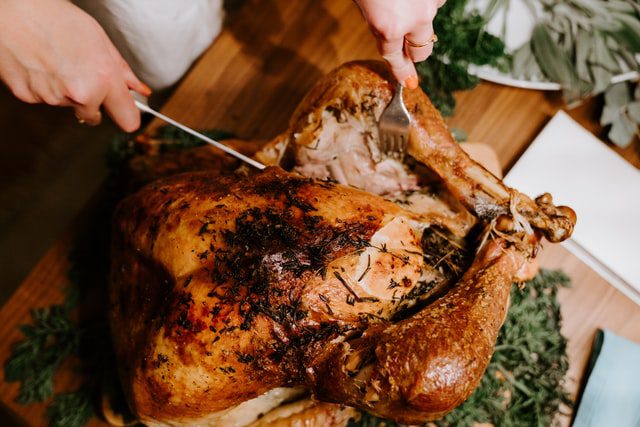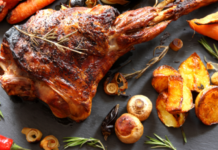Two million turkeys, 74 million mince pies and five million Christmas puddings. Sounds like a feast fit for a small nation? Well that’s the estimated number of otherwise edible festive food items that ended up in landfill this Christmas in the UK – and that’s not even taking into account things like vegetables, cheeses and unwanted party food that found their way to the bin.
In fact, a UK survey in 2021 revealed that over 45 per cent of people admitted to buying too much food over Christmas* with cheese, biscuits and chocolate coming out as the most overbought products. But with government figures showing that the amount of household food waste collected by local authorities across the UK rose by 11% to 485 thousand tonnes**, food waste isn’t just a Yuletide problem.
It’s also not just down to us as consumers, as food industry expert Hannah Anderson, Managing Director of ethical online food retailer 44 Foods explains:
“Many of us would have seen first hand the supermarket shelves this Christmas Eve, still piled high with turkeys, vegetables and other perishable items that sadly, would likely have ended up in landfill. It’s a particularly sobering thought when you consider that five million people in the UK are living in food poverty***.
“The major food retailers are an important piece of the puzzle when it comes to reducing food waste and as we’ve seen with the likes of Morrisons and their decision to remove use by dates from its milk bottles, steps are being made in the right direction.
“More support for UK producers is crucial too. Behind each item of wasted food is the wasted time, money and effort of a producer and with so many across the farming industry struggling, they need our support more than ever.”
But there’s plenty that we as consumers can do too, Hannah, who has worked in the food buying industry for over 20 years says. “As a consumer, shopping more mindfully is one of the biggest ways to reduce food waste.
“Part of that is spending more and buying less. With the cost of living on the rise, that might seem counterproductive, but spending slightly more on quality products and buying only what you need to buy can actually save you money in the long-run as you won’t be throwing as much of your hard earned cash straight into the bin at the end of every week.
“Swapping those big name retailers for smaller, local producers can make a huge difference. Supermarkets by their nature deal in bulk, meaning that you often have little choice but to overbuy, especially when it comes to things like vegetables or meat products. They also reel you in with the promise of cheaper prices by buying more than you really need.
“Buying your food straight from the farm can not only give you a better quality product but it also gives you more control over the amounts that you’re buying so the fridge won’t be full of stuff you’ll never get around to using. It also means that what you’re buying is as fresh as it possibly can be without first having been wrapped in plastic and sat in an industrial chiller for days.”
You won’t need to don your wellies or make a trip to the farm shop either, Hannah explains.
“Sites like 44 Foods give you access to producers across the UK – think of it like a nationwide farm shop that lets you pick and choose ethically homegrown produce which is then delivered to your door. We also don’t do next day delivery which means that everything you order is at it’s very best when it reaches you. We even do bundles which means that whether you’re cooking a Sunday roast or a weekday meal, we’ll pull together everything you need, in the right quantities, and all you need to do is the cooking.”
So, when it comes to reducing food waste, it’s about shopping smaller, shopping smarter and focusing your food budget where it really matters. To see the full 44 Foods range, visit www.44foods.com
Help keep news FREE for our readers
Supporting your local community newspaper/online news outlet is crucial now more than ever. If you believe in independent journalism, then consider making a valuable contribution by making a one-time or monthly donation. We operate in rural areas where providing unbiased news can be challenging. Read More About Supporting The West Wales Chronicle

























